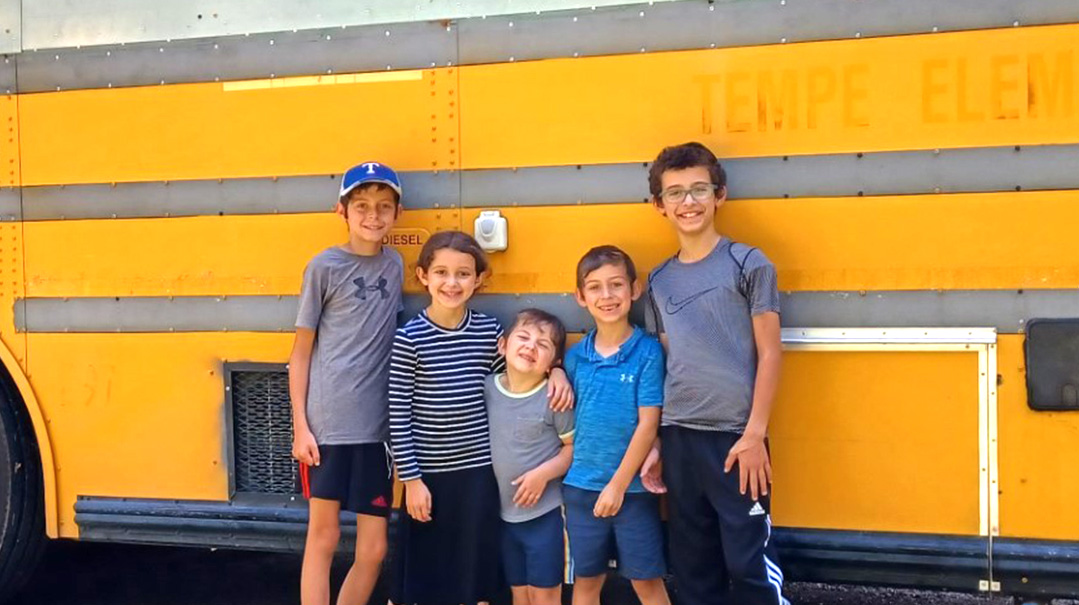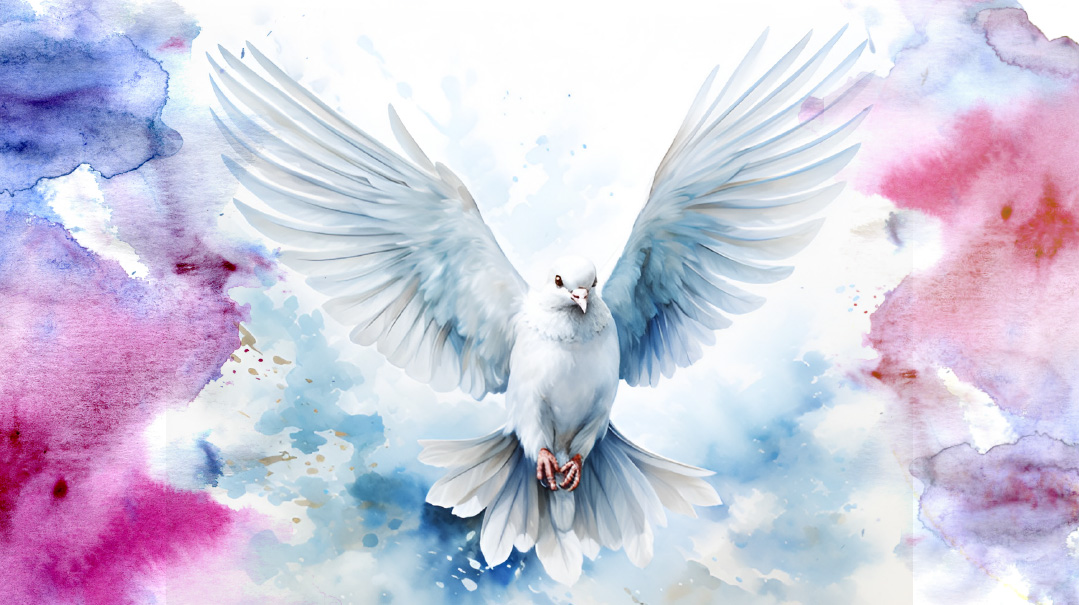It’s That Time of Year Again!
| September 23, 2020What’s the special energy of the Yamim Noraim? How can we access it? Let’s ask some ordinary people how they find meaning in the unique mitzvos of Tishrei

Avraham B. is from New York. Every year, his family retells a story about their grandparents in Uyhel, Hungary, before World War II. On Shabbos Mevarchim (the Shabbos before the new month begins) before the month of Elul, the baal korei (the one who reads the Torah in shul) would announce, “Rosh Chodesh Elul will be on…” and then wait expectantly.
After pausing for a few moments, he would repeat more loudly, “Rosh Chodesh Elul will be on…” and again he would stop without completing the sentence. Only when the baal korei heard sounds of weeping coming from the women’s gallery did he finish the sentence by calling out the days of the coming week that marked the beginning of the month of Elul. Why did he do this? Jews in those days truly understood that the month of Elul means that the Days of Awe are coming. We must get ready!
The Magical Moment
We all spend these weeks trying to be better Jews. As Yom Kippur comes nearer, everyone tries to increase their concentration when davening. We give more tzedakah. We’re mindful of the words we speak to our parents, siblings, and friends. What is the best way to repair the mistakes we’ve made over the previous year so we can make next year better than this one, in every way?
Recently I spoke to a cross section of children and adults to hear what made these days especially meaningful in their lives. Each one mentioned the things we all know — but each one was induced to feel the kedushah in the Days of Awe by a different detail that spoke to them personally.
Chaim H. from Modiin Illit in Israel remembers that as a child, Yom Kippur began when his father blessed the children. The solemnity and sincerity of the blessings brought him straight into the holiness of the day.
Laya W. remembers how the morning of Erev Yom Kippur began with kapparos and generous helpings of delicious food, but by the afternoon, all the older children were sent out of the house for Yom Tov. Her family lived in a secular Israeli city where Yom Tov is not yet observed according to halachah, so her mother, who was a baalas teshuvah, arranged for the oldest siblings to spend the holy days in Bnei Brak or Jerusalem with the families of her close friends. Ima stayed home alone with the smaller children to daven in the house, though her heart accompanied the older ones who were away. Laya’s brothers and sisters eventually built beautiful Torah-observant homes, but they never forget the mesirus nefesh of their mother, whose longing for her children to grow up as erliche Yidden overcame her maternal desire to keep them near her.
Rebbetzin Hannah Miller’s expression grows dreamy when I ask her about her zeidies. She is the granddaughter of Rav Yosef Shalom Elyashiv and Rav Alexander Ziskind Berlin.
The Berlin eineklach were in awe of Zeide Elyashiv, who paused briefly from his continuous learning to gift the grandchildren with a rare smile and a blessing.
Visiting Zeide Berlin was a different experience. Hannah’s eyes dance at the memory of her paternal Zeide, who was already dressed in his snow-white kittel from noontime on Erev Yom Kippur. His face glowing in anticipation, Rav Alexander Ziskind blessed each of the children individually while his Rebbetzin hovered on the side with pastries and candy. All day on Erev Yom Kippur, Savta Berlin would repeat, “It’s a mitzvah to eat today!” as she handed out endless sweets and slices of cake to her beloved grandchildren.
“It’s funny,” Rebbetzin Miller recalls, “I can’t explain why, but the most inspiring memory I have of that time is my grandfather doing hataras nedarim (annulment of vows) on Erev Yom Kippur together with the women and girls. The walls of the shtibel seemed to radiate kedushah. It wasn’t so much the event itself as it was my Zeide’s demeanor. He was like a malach. For me, that was always the moment of greatest hisrommemus (exaltation).”
Tovy M., originally from St. Louis, Missouri, points out that, “The tefillah during the Yamim Noraim and the mitzvahs we perform only at this time are extremely powerful. The chazzan’s melodies immediately reawaken the slumbering memories from previous years. You only have to allow the familiar Yom Tov niggunim to touch your heart, and your deepest feelings will resonate with them.”
Reizy B. from Brooklyn doesn’t have to think for long. “Yom Kippur?” she muses. “My most vivid memory is of my elderly grandmother. I was about ten years old, and my mother sent me to see if she was alright, and I just stood and watched her with awe. Babba was dressed in white from her tichel to her slippers. To me, she looked like an angel. Babba couldn’t keep up with the chazzan because she was makpid to read every word of the Selichos. To me, Babba on Yom Kippur embodied Yom Kippur. I hope I can be like her with my own children and grandchildren.”
Rebbetzin Gittel Moskowitz grew up in Monsey. She shared an inspiring anecdote about her father, Rav Ezriel Tauber. As a young teenager, she was trying hard to prepare herself for the coming Days of Awe. “I told my father that it feels beyond my reach to truly be prepared for Yom Kippur. How could I do teshuvah properly before such a great day?”
Her father responded, “Who do you think the King feels closer to, someone who is sure of himself, expecting forgiveness because he feels he deserves it, or someone who feels unprepared relative to the majesty of the King, who comes with a broken heart full of remorse and submission because he realizes he has not prepared sufficiently?”
It’s obvious that the King will feel more compassion for the sincere person who humbly yearns for His forgiveness than the one who is full of himself, believing that the King owes him a successful year. “This made a very strong impression on me,” Rebbetzin Moskowitz explains. “It helped me understand the relationship of a Jew and his personal effort to prepare for the Yom Hadin.
“Another thing I absorbed from my father regarding Erev Yom Kippur was that even though Yom Kippur is an awesome and auspicious time, we should approach it with happiness and hope. Hashem desires our teshuvah, He loves every Jew, and He wants to inscribe us for a shanah tova u’metukah! All we have to do is truly open our hearts and we are assured of His compassion.”
An Unusual Yom Tov
This year Am Yisrael prepares for the Days of Awe with uncertainty. Last year, who could have imagined that a microscopic virus from China would infect the world and change so many lives? Remembering the inspiration of davening in shul with the whole congregation, we don’t know now if it will be possible to daven there again this year. What kind of Yom Tov will it be if we are separated from our extended family and friends, wearing masks and keeping six feet apart from each other?
My dear friend from England shared a story that is especially relevant. One particular Yom Kippur stands out in Miriam’s memory. Just before candlelighting, she fell seriously ill and was rushed to the hospital. Diagnosed with dehydration, Miriam was admitted to the ward and given fluids intravenously, and she was told that it was forbidden for her to fast.
With wonder in her voice, Miriam remembers that year as the most inspiring Yom Kippur of her life. From her hospital bed, behind drawn curtains, she felt as if she were alone with Hashem. With every bite she swallowed, she reminded herself that she was fulfilling the mitzvah of v’nishmartem meod l’nafshoseichem. With determination and courage, she accepted her situation with joy because she knew it was Hashem’s Will that she be in this place at that time.
We don’t understand why COVID-19 came into our lives, but we do know that Hashem runs the world and so it must be part of His plan. Wherever you are on Rosh Hashanah and Yom Kippur, remember that you are exactly where Hashem wants you to be. Do your best, and Hashem will do the rest. Torah scrolls wrapped in white splendor, beautiful niggunim, and crowds of mispallelim help make Yom Tov memorable — but Yom Tov can be special even if you are davening at home. Perhaps you will one day tell your children and grandchildren about the best Yom Kippur of your life, when you were alone with Hashem at home instead of at shul.
(Originally featured in Mishpacha Jr., Issue 829)
Oops! We could not locate your form.





